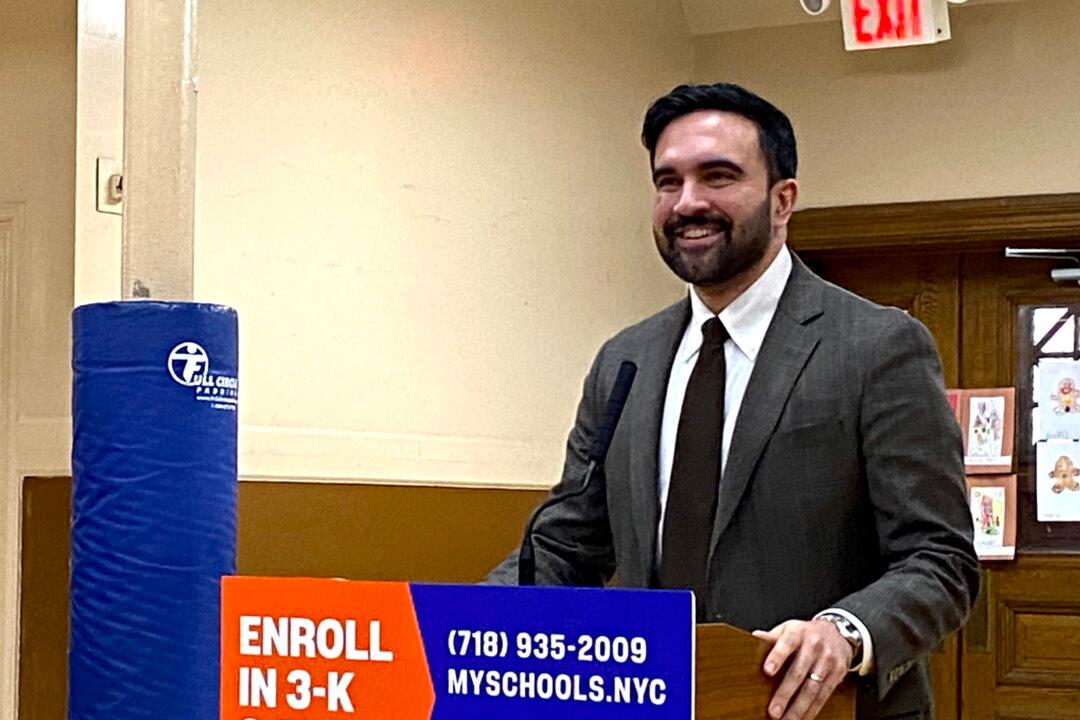NEW YORK—State Sen. Jeffrey Klein (D-Bronx, Westchester) and the Independent Democratic Conference said Mayor Bill de Blasio’s universal prekindergarten plan could benefit the city to the tune of $3.5 billion over 26 years.
State Sen. Diane Savino (D-Staten Island, Brooklyn) joined Senate Coalition Co-Leader Klein at City Hall for the release of the report, which is based on the Chicago Longitudinal Study of pre-K, which followed 1,500 low-income children from 1985 to 2011.
“If a young person gets universal pre-K their educational achievement is going to be greater, they are going to get better jobs,” and “go on to be much more productive citizens,” said Klein.
Helping New Yorkers be more productive and successful will mean residents will be less likely to need welfare services. They are also less likely to get in trouble with the law, go to prison, or need treatment for drug addiction, saving the city billions of dollars over time, according to the study.
Klein said he is taking a different angle from de Blasio. Rather than seeing universal pre-K as a matter of “how do we bridge the income gap, it’s an economic engine. It’s actually going to eventually save us billions and billions of dollars,” said Klein.
The study is an effort to win support for de Blasio’s universal pre-K plan at the state level. De Blasio wants to expand pre-K education by raising taxes on New Yorkers making more than $500,000; the state Legislature must approve such a tax increase.
Tax Benefit
The report suggests that the education policy is likely to lead to taxpayer savings in the future, a point that may help the Democrats win support for the plan at the state level. The return on investment for the city could be as much as $10.83 per dollar spent on pre-K.
Klein’s Republican co-leader in the Senate, State Sen. Dean Skelos, has expressed support for the pre-K plan, but not for raising taxes to pay for it.
Gov. Andrew Cuomo has made tax cuts a priority for the upcoming legislative session (a re-election year for him and both houses of the Legislature). In addition, the Senate’s Budget and Tax Reform Committee met with business associations and labor groups throughout the state last year to hear their thoughts on how best to cut taxes. The committee spearheaded the effort as a way to create jobs and ease the burden of the recession on New Yorkers.
Asked how they would win support for the plan in Albany, Savino said it is commonplace for the Legislature to authorize localities to raise taxes when a clear plan for the money is identified.
The New York City Council “and mayor have said this is what they need for their city. We in the Legislature in Albany should not substitute our judgment for the judgment of the local elected body. We don’t do it in any other instance, and we should not do it here,” said Savino.
“There was no doubt Bill de Blasio made this a central part of his campaign platform and he won in a record landslide, so it’s pretty clear the people of the city of New York support this,” Savino said.




